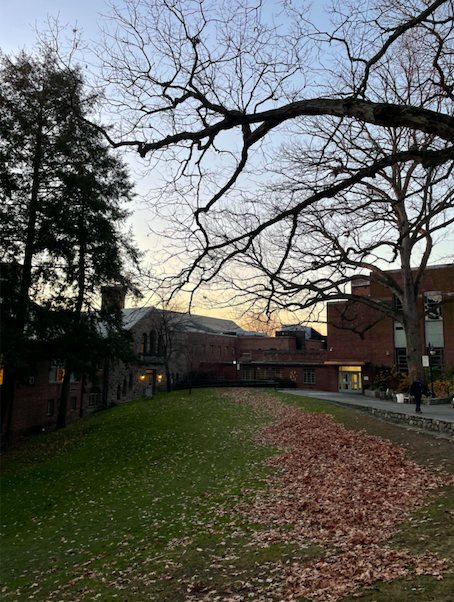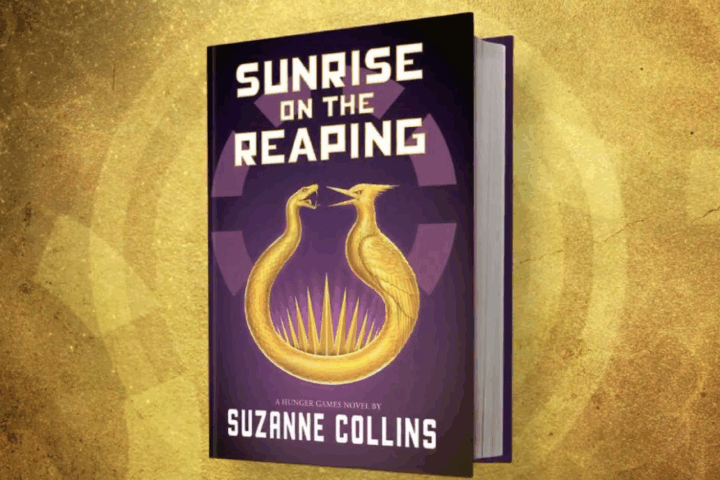photo credit: isadora casdin
The field of philosophy is known for its study of fundamental and general questions. Along with creating new specialities based on philosopher’s questions, the questions asked are the causes of existential crises for humans who desperately seek the answers. The realization that human beings are alive and that we will die, are all connected to consciousness. The new question keeping philosophers up at night is how to explain the nature of consciousness itself.
The essence of consciousness is a fairly few new and unexplored question. Philosophers and scientists are grappling with how to understand how a gooey and grey piece of matter (the brain), can give rise to knowing math problems, to having feelings, ideas and form who a person is.
Enrique Chávez-Arvizo, my father and a philosophy and ethics professor at John Jay College of Criminal Justice, explained the creation of the question: “René Descartes, the famous 17th century French philosopher and mathematician that I study was probably one of the first ever to frame the problem, when he wrote that by ‘thought,’ he meant the whole range of consciousness. He meant everything that we’re conscious of. In other words, for him, thought involved the whole range of consciousness: such as, affirming, denying, willing, unwilling, think, doubt and even sense experience and imagination.”
Not only are philosophers trying to understand consciousness, they are also tackling its related phenomena. Professor Chávez-Arvizo, gave light on phenomenological consciousness: “Phenomenological consciousness is exemplified by what philosophers call qualia or what it is like to have a conscious experience. For example, there’s something that it is like to be you, there’s something that it is like to be a bat, there’s something that it is like to be a whale. In other words, a being is conscious, there must be something that it is like to be that being. So, I think that the next big thing in philosophy must explain the nature of consciousness and all its related phenomena.”
Philosophers are also dissecting consciousness as awareness. Professor Chávez-Arvizo says there are two types of awareness. The first, is “being aware that you are doing something, say driving or typing.” The second, is “Being aware that you’re aware. For example, being aware that you are thinking. In other words, reflecting on your own mental states.”
The two states of awareness and phenomenological consciousness could even be more important to understand than the nature of consciousness itself, according to Professor Chávez-Arvizo.
He believes that this understanding would be equivalent to the discoveries of DNA, the earth not being the center of the universe, and the atom not being the smallest particle.
Mr. Roy Blumenfeld, an ethics, philosophy and City Semester teacher here at Fieldston, feels similarly: “It’s a really unique phenomenon of animal brains and of the human brain in particular, therefore it kind of exists outside the realm of explanation that we have, meaning we don’t even know what we don’t know.”
In his opinion, understanding how consciousness arises is one of the next big things because “it’s a really really interesting question that we are still feeling our way around and we don’t really know yet. The human brain is arguably the most complex biological thing that exists in our universe that we can examine.”
There are obstacles to understanding consciousness. “The easy one,” according to Professor Chávez-Arvizo, “is the neuroscientific one that aims to explain how the brain works and how the brain gives rise to, say, our visual sense perceptions.” The hard one is to explain the nature of consciousness itself. “The difficult part is to say, what gives rise to this phenomena that you and I experience? How can something physical give rise to something that doesn’t appear to be physical at all. It seems to defy scientific explanation,” he said.
Mr Blumenfeld, thinks similarly to Professor Chávez-Arvizo: “The hard problem is, as Chalmer thinks of it, it’s how do you think of something that is more than the sum of its parts? Is there something about experience that is irreducible? I think that consciousness is the description of what subjective experience is.”
The knowledge of consciousness will lead to the understanding “about the most intimate parts of ourselves, which is what are our thoughts, desires, beliefs, judgements, loves and dislikes,” which could have a massive impact on everyday life. Blumenfeld thinks that “depending on what we find out, it will really impact the way that we think about free will.”
In terms of an institutional impact, he said “it will significantly impact the way we think about, for example, responsibility and punishment.” He researched this question in graduate school: “how does what we know about the brain impact how we think about intentions, judgements, in a way that impacts the legal sphere?” Unknown motives and intentions that face legal courts today, could be easily discovered in the future.
Any scientific or philosophical advance deals with an underlying concern: can the answer to this question become dangerous? For example, the scientific breakthroughs that created the atomic bombs. The creation furthered the world’s scientific knowledge, but also created one of the most catastrophic weapons.
Blumenfeld believes there is a “huge” chance the discovery could be dangerous: “We are very good at weaponizing information. If we go back to the question of free will, if we have a greater understanding of how people form thoughts, there might be a worry that we would try to hold people responsible for thoughts they have, for example, that they’ve never verbalized.”
This idea of the possible danger led Mr. Blumenfeld down a path of more impossible to answer questions. He wonders how the understanding of the brain would impact different areas: holding people responsible: our relationships with another: and our relationships with ourselves. The potential effects of the information can only be speculated, but he thinks “there’s a lot of potential ways in which that information can be used and abused.”
He brought up the potential impact the knowledge could have on artificial intelligence. For example, car companies have been hiring philosophers and ethicists as they invent self-driving cars. If the car can predict it’s going to be in an accident, Mr. Blumenfeld wonders what the car’s duty is: “Does it try to perform the action that would save its owner, even if for example, it comes at the expense of harming other people? Does it try to reduce overall harm? What is the imperative that it acts by?” The idea brings up the idea of the car’s consciousness: “as we’re modeling our brains and trying to understand our own consciousness, doing that artificially is sort of a reflection on the way that we think about it,” he says.
Daniel Garber, a professor of philosophy at Princeton University, is an expert of early modern philosophy and science. He believes that the importance of understanding consciousness depends on what we mean by consciousness: “In its minimal sense,” he says, “it just means awareness.”
In Latin, however, Garber mentioned there is no direct translation of the word consciousness: “Latin—thinking now about philosophy in the early Modern period— Latin was sort of the language in which serious people wrote philosophy.” The word early philosophers did use was cōnscientia, “which sort of looks like conscious, but it really means conscience. It didn’t attain the meaning of conscious until somewhere in the middle of the 17th century.”
Both Garber and my father are experts on René Descartes. As mentioned earlier, Descartes was one of the first philosophers to play around with the idea of consciousness. In the 17th century, there was a great divide on whether consciousness even existed, let alone how it worked: “There was a big debate in the early modern period between those, like Descartes for example, who did believe that we were conscious of various things in our experience, and that that required positing something over and above matter, something over and above body. And then there were those, like Hobbes for example, who thought all that there were in the world was body, and who thought that, in fact, the idea of an un-bodily thing was a contradiction.”
He adds that the debate at its core, “was really a debate between people who thought that all there is in the world is physical stuff, and people who thought that there was something more than that,” and less about “people who believed in consciousness and people who thought they could do without it.”
As time progressed, consciousness was put on the backburner of the philosophical world: Garber says that “As philosophers became more and more oriented to the scientific world, it looked like we had to get rid of consciousness, because there doesn’t seem to be any room for it.”
The question is, how long after Descartes did people start seriously reigniting the same questions? Garber says in the late 1980s and early 1990s, people began to question the idea of physicalism that most philosophers adopted: “In Hobbes’ day it was generally thought that the physical world was just made of matter. We now know that matter is relatively more complicated. Rather than calling themselves materialists, philosophers who took this position (which was almost everybody), called themselves physicalists; that everything that goes on in the human body can be explained in an entirely physical way, without appeal to any entities that aren’t themselves physical.”
Similarly to the 17th century with Descartes’ discoveries, the idea of consciousness was not very well received. According to Garber, “There was a backlash in the late 80s early 90s.” He holds David Chalmers, a professor at NYU, responsible. “He insisted that our experience shows us that there’s something more. He has become the consciousness guru,” he said. Chalmers was able to convince many people that consciousness is not an insane concept, “and that one needs to understand where consciousness comes from.”
As Garber understands it, “there’s a number of different approaches. One of them is to say that yes, all is neurophysiology, but when you reach a certain level of complexity, consciousness sort of emerges.”
If we think about consciousness as an emergent property, “in the way in which life is sort of an emergent property,” Garber says a certain level of organization is met, “and you have a living thing, which is an important ways distinct from the rest of nature. So in principle, if you could build a computer of sufficient complexity, it could have consciousness too.”
Descartes concluded that mind is distinct from body, so another approach is to believe that mind exists as a separate entity. Mind, “which is the seed of our thought, and which is itself non-physical,” says Garber, but the matter of a non-physical entity arises another question; what does it mean to be non-physical? It is a question that philosophers like Garber ponder, “If you were to discover that there was something like that in the world, why wouldn’t you call that physical?” It is a mind boggling thought: “It isn’t like other physical things, but then electrons aren’t like protons either,” he jokes.
A third perspective is through panpsychism, which proposes that everything in the universe is in one way or another conscious. The theory goes back to the early modern period, and it is a view that Garber finds particularly puzzling, “it does seem to be that there is something different about us from other things in the universe,” he says. However, if scientists were to conclude that everything is to some extent conscious, there has to be an explanation as to why human beings are more conscious than say oysters and rocks. If everything was conscious, Garber is “not sure what would differentiate one thing from another as far as consciousness goes.”
In his professional opinion, Garber says, “I kind of believe that it is a matter of organization, and that consciousness is just sort of what it feels like from the inside, to have that kind of complex organization.” He recognizes that his explanation is “not a tremendously sophisticated position,” but he does side with the position of crass materialism in the debate of consciousness, “which is to say in one way or another it is all matter, it is all physical.” Nonetheless, the topic is so difficult to comprehend that he leaves “it to other people to explain the details.”
In terms of how the knowledge of how consciousness arises would change everyday life, Garber does not expect anything revolutionary. “In a certain sense we’ve already got it, you think you’re conscious, don’t you?” he jokes, “I think I’m conscious, having a philosopher tell you that you really are conscious is not gonna really change anything.” He does believe that the knowledge would be extremely beneficial to understanding consciousness outside of human beings.
Descartes invented the astonishing theory that animals are not conscious. According to Garber, Descartes believed that consciousness requires a specific kind of soul that only humans possess, therefore animals are complicated machines. He gave an example of hurting a dog, “when you hit a dog and the dog makes a noise, that’s like the kind of noise that happens in the machine when two of its wheels scrape against each other.” If we know what consciousness is and understand that “well a dog may be in some respects less conscious than we are but still conscious, then that would enable you to treat the dog differently than you would if you really thought it was just a complicated machine.” Ultimately, it would change our relationships with different living things, even trees for example. Garber believes that if we knew that trees are conscious it would impact climate change discussions.
Until a scientific breakthrough occurs and adds more knowledge to this headache of a question, myself, philosophers, scientists and other human beings tormented by philosophical questions will continue to stay up at night. Whether the problem will be solved in this lifetime or the next, like many other things in life, is completely unknown. Until then, humanity should try to enjoy consciousness in ways they understand. Bask in the uncertainty of the question, as we have heard from experts, who knows what the answers will bring.






